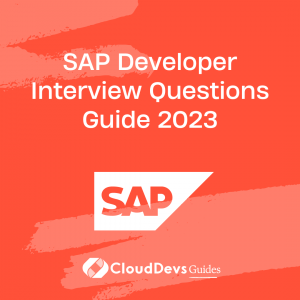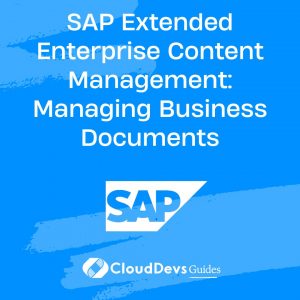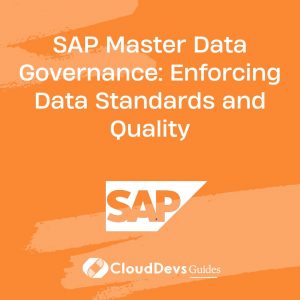SAP Developer Interview Questions Guide 2023
With SAP growing in popularity for offering effective enterprise software to optimize work processes in organizations, the demand for SAP developers only continues to grow. To ensure you are landing the most suited candidate for your project requirements when seeking to hire SAP developers it is necessary to evaluate not only their technical skills in SAP but also wider soft skills, as well as current exposure and experience in the SAP ecosystem. The importance of effective SAP developer interview questions cannot be overlooked at this point.
Table of Contents
In this article, you will find a variety of useful interview questions that would assist you to determine the suitability of a SAP developer candidate for your organization.
1. How Can My Organization Hire SAP Developers?
A range of platforms are used to hire expert SAP developers including job vacancy posting, online platforms, and recruiters. To engage with all such platforms, an initial phase involved in hiring committed SAP developers is to offer clear-cut insights on what skills, qualifications, and experience the organization is seeking for, while also specifying information about requirements for the role.
1.1 Skills required in SAP developers
- SAP Technical Expertise: One of the most critical skills for SAP developers is a deep understanding of SAP systems and technologies. This includes expertise in SAP modules such as Finance (FI), Controlling (CO), Sales and Distribution (SD), Materials Management (MM), and Production Planning (PP). Proficiency in ABAP programming language and familiarity with SAP NetWeaver are also essential.
- Problem-Solving Abilities: SAP developers must possess strong problem-solving skills to analyze complex business requirements and develop effective solutions within the SAP ecosystem.
- Integration and Interface Development: SAP developers need to have a solid understanding of integration and interface development within the SAP environment. This includes knowledge of SAP Integration technologies such as SAP PI/PO, SAP ALE/IDoc, and SAP RFC.
- Customization and Enhancement: Another sought-after skill involves configuring SAP modules, creating custom reports, developing enhancements using ABAP, and implementing user exits and BAdIs.
- Testing and Debugging: SAP developers should have experience in testing and debugging SAP programs to ensure the quality and reliability of the developed solutions. They should be familiar with tools like SAP Debugger and have knowledge of unit testing, integration testing, and user acceptance testing methodologies.
- Strong Communication and Collaboration Skills: Effective communication and collaboration skills are crucial for SAP developers to work effectively with cross-functional teams, business stakeholders, and end-users.
- Continuous Learning and Adaptability: it is essential for SAP developers to have a strong appetite for continuous learning and adaptability to stay updated with the latest trends and advancements in the SAP ecosystem.
2. Overview of The Process to Hire SAP Developers
Hiring SAP developers is a crucial step in building a competent and efficient team for your organization. The process to hire SAP developers is outlined below, providing a structured approach to finding the right candidates for your organization.
2.1 Establishing Skills and Requirements
Before hiring SAP developers, it is crucial to understand the specific needs and goals of your organization Based on the organizational needs, define the different job roles for SAP developers. Determine the technical skills required for each job role, such as proficiency in SAP modules (e.g., FI/CO, MM, SD), programming languages (e.g., ABAP, Java), and experience with SAP implementation projects.
2.2 Writing Out An Effective Job Description
Enumerate the specific responsibilities and tasks that the SAP developer will be expected to undertake. Clearly outline the technical skills, experience, and qualifications required for the position. This may include specific SAP certifications, years of experience in SAP development, and knowledge of relevant programming languages.
2.3 Determining interview questions
Prepare a set of technical questions that assess the candidate’s knowledge and expertise in SAP development. Present candidates with real-life scenarios that they might encounter in their role as SAP developers. Include behavioral questions to assess the candidate’s soft skills and their fit within the organizational culture.
Some potential interview questions are outlined below:
Q1. What is SAP and what is its role in an organization?
SAP, which stands for Systems, Applications, and Products in Data Processing, is a leading enterprise resource planning (ERP) software. It helps organizations streamline their business processes, integrate various departments, and manage their operations efficiently.
Q2. What is the difference between SAP ECC and SAP S/4HANA?
SAP ECC (Enterprise Central Component) is the predecessor to SAP S/4HANA. ECC is built on a traditional database structure, while S/4HANA is built on an in-memory database called SAP HANA. S/4HANA offers real-time analytics, faster processing, and simplified data models compared to ECC.
Q3. Can you explain the SAP development lifecycle?
The SAP development lifecycle consists of several phases, including requirement gathering, design, development, testing, deployment, and maintenance. During the requirement-gathering phase, business requirements are collected. In the design phase, the technical design and architecture are planned. Development involves writing and testing the code. Testing ensures the developed solution meets the requirements. Deployment involves deploying the solution to the production environment, and maintenance involves ongoing support and enhancements.
Q4. What is an ABAP program?
ABAP (Advanced Business Application Programming) is the programming language used in SAP systems. ABAP programs are used to develop custom functionalities, reports, and interfaces within the SAP environment.
Q5. What is an SAP module?
SAP modules are individual components of SAP software that cater to specific business functions. Examples of SAP modules include Finance and Controlling (FI/CO), Sales and Distribution (SD), Materials Management (MM), and Human Capital Management (HCM).
Q6. What are SAP data dictionary objects?
SAP data dictionary objects are used to define and manage data structures within the SAP system. Some common data dictionary objects include tables, views, structures, and data elements.
Q7. How do you troubleshoot performance issues in an SAP system?
To troubleshoot performance issues in an SAP system, you can analyze system logs, monitor system resources, identify specific transactions or processes causing the slowdown, and optimize system parameters. Performance monitoring tools such as SAP Solution Manager can also be used to identify and resolve performance bottlenecks.
Q8. Can you explain the concept of transport requests in SAP?
Transport requests are used to move changes made in the development environment to other SAP system landscapes like quality or production. They ensure that changes are implemented consistently across different system environments and allow for proper testing and approval processes.
Q9. What is the difference between BAPI and RFC?
BAPI (Business Application Programming Interface) is an API provided by SAP to access and manipulate SAP data and functionality. RFC (Remote Function Call) is a mechanism used to call functions remotely in an SAP system. BAPIs are a specific type of RFCs that follow certain guidelines and best practices for SAP integration.
Q10. How do you handle SAP system upgrades?
SAP system upgrades involve updating the SAP software to the latest version. To handle upgrades, a proper upgrade strategy is planned, including system backups, testing, and documentation. The upgrade process is typically carried out in a sandbox environment first, followed by testing and validation before performing the actual upgrade in the production environment.
Q11. ABAP Programming
Write an ABAP program to find the sum of all even numbers from 1 to a given input number (inclusive). If the input number is negative, return an error message.
REPORT Z_SUM_OF_EVEN_NUMBERS.
PARAMETERS: p_input_number TYPE i.
DATA: lv_sum TYPE i,
lv_num TYPE i.
IF p_input_number < 0.
WRITE 'Error: Please enter a positive number.'.
ELSE.
DO lv_num = 0 TO p_input_number.
IF lv_num MOD 2 = 0.
ADD lv_num TO lv_sum.
ENDIF.
ENDDO.
WRITE: / 'Sum of even numbers from 1 to', p_input_number, 'is', lv_sum.
ENDIF.
Q12. SAPUI5 Development
Create an SAPUI5 application with a simple button. When the button is clicked, display an alert with the message “Hello, SAPUI5!”
<!-- index.html -->
<!DOCTYPE html>
<html>
<head>
<meta http-equiv="X-UA-Compatible" content="IE=edge">
<meta charset="utf-8">
<title>SAPUI5 Button Example</title>
<script src="https://openui5.hana.ondemand.com/resources/sap-ui-core.js"
id="sap-ui-bootstrap"
data-sap-ui-theme="sap_belize"
data-sap-ui-libs="sap.m"></script>
<script>
sap.ui.getCore().attachInit(function () {
new sap.m.Button({
text: "Click me!",
press: function () {
alert("Hello, SAPUI5!");
}
}).placeAt("content");
});
</script>
</head>
<body class="sapUiBody" id="content"></body>
</html>
Q13. SAP HANA SQL
Write an SQL query to retrieve the top 5 customers who have made the highest total purchase amounts from the “Sales” table. The “Sales” table contains the following columns: CustomerID, PurchaseAmount, and PurchaseDate.
SELECT TOP 5 CustomerID, SUM(PurchaseAmount) AS TotalPurchaseAmount FROM Sales GROUP BY CustomerID ORDER BY TotalPurchaseAmount DESC;
Q14. SAP Workflow
Design a basic SAP workflow that triggers an approval step when a purchase requisition (PR) exceeds a certain amount (e.g., 10,000 USD). Assume there is a custom field called “Amount” in the PR.
Workflow Definition:
- Start Event: PR Created
- Exclusive Gateway: Check Amount > 10,000 USD?
- YES Sequence Flow: Approval Step
- NO Sequence Flow: End
Workflow Code for Approval Step:
METHOD APPROVAL_STEP.
DATA: lv_amount TYPE i.
DATA: lt_user_role TYPE TABLE OF swlrole.
SELECT SINGLE Amount
INTO lv_amount
FROM PurchaseRequisition
WHERE PurchaseReqID = %_WI_OBJECT_ID.
IF lv_amount > 10000.
lt_user_role = VALUE #( ( role = 'MANAGER' ) ). " Replace 'MANAGER' with appropriate role for approvers
SET AGENT lt_user_role.
CONTINUE TASK.
ELSE.
SET COMPLETED.
ENDIF.
ENDMETHOD.
Q 15. SAP Business One SDK
Create a simple SAP Business One SDK addon to add a custom button to the Business Partner Master Data window. When clicked, the button should show a message with the Business Partner’s name.
using SAPbouiCOM;
public class BusinessPartnerAddon
{
private static Application _application;
public static void Main()
{
_application = new Application();
// Add the menu item to the Business Partner window
var businessPartnerForm = _application.Forms.Item("134"); // Change the form ID if needed
var menuItem = businessPartnerForm.Menu.Add("CustomButton", BoMenuType.mt_STRING, BoMenuPosition.mpos_FIRST);
// Set the menu item caption and event handler
menuItem.Caption = "Show Name";
menuItem.ChooseFromListAfter += ShowBusinessPartnerName;
}
private static void ShowBusinessPartnerName(ref MenuEvent pVal, out bool bubbleEvent)
{
bubbleEvent = true;
var businessPartnerForm = _application.Forms.ActiveForm;
var businessPartnerName = ((EditText)businessPartnerForm.Items.Item("5").Specific).Value;
_application.MessageBox($"Business Partner Name: {businessPartnerName}");
}
}
3. Where Can You Find Expert SAP Developers?
Having defined the job role and outlined the interview questions, it is time to commence screening the talent pool for your ideal candidate.
There are various platforms through which you may source SAP developers, and these often include job postings, online platforms, and recruiters. Often popularly accessed job platforms such as LinkedIn and Indeed carry advertisements for SAP developers, while freelancer websites and remote work marketplaces too are commonly used mediums for accessing SAP developers who seek to be hired.
Depending on the popular developer platform CloudDevs for all your SAP developer hiring requirements will provide you with a hassle-free hiring experience where you do not need to waste your energy on most of the aforementioned steps. Our convenient SAP developer hiring guide provides you with key techniques to land top SAP developer candidates for your projects.
Table of Contents









